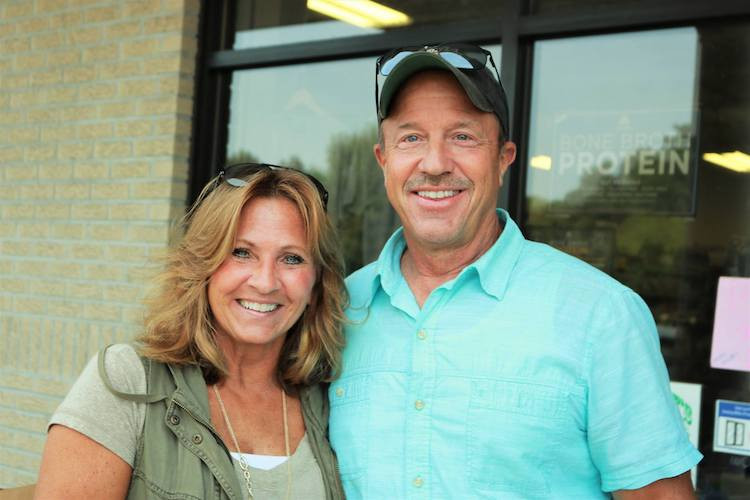Meet Your Cattle Farmers
- Matt oversees the daily help on the farm and plans and executes and projects for needing to be completed on the farm,oversees the animal production, reads and learns about beef, regenerative farming, grass-fed diets, and how to raise the best quality beef.
- Beth makes sure customers get a great experience with their farm and product, pick up meat from the processor, packs orders, among other roles.
- What inspires them each day is knowing the animals are needing fed and looked after and there are projects to make progress on. The reward of the hard work is seeing the livestock and a growing farm everyday.

Pics from the Farm




Farmer Q and A
Can you give examples of how you go the extra mile to ensure the ethical care of your livestock?
Our goal is always to raise the animals in a way that is as close to their natural habitat as possible. Keeping them on pasture with a great selection of lush grasses makes every day for them a good one. Our farm and staff show integrity when caring for the animals with respect.
Can you talk about the life cycle of an animal on your farm?
We do our best to raise our own replacement heifers to minimize bringing cattle from other herds. This helps lower our risk of disease and sickness. Breeding takes place on the farm and calves are born into the herd. The calves are weaned from their mothers at about 9 months of age and are moved to a different pasture as a part of our feeder group. Our different groups are all rotated through the pastures daily to be sure they are offered fresh pastures and proper foraging. Our cattle take 20-24 months to reach a point where they are ready for market. Throughout each stage of the caretaking and handling of the livestock , the animals are treated with respect and care.
What production protocols do you follow?
*Grass-fed and finished *Non-gmo *regenerative *No spray *No antibiotics or hormones We do not use synthetic fertilizers on the land. We do not use growth hormones or feed antibiotics to enhance growth or prevent disease, but we focus on animal husbandry practices that improve the overall health of our animals. Our concern for the health and well-being of our animals lead us to the conclusion that the occasional use of antibiotics, when a serious or life-and-death case arises, is in accordance with excellent animal husbandry practices and Biblical teaching of stewardship. The animals however would not continue in our meat program.
What do you enjoy most about raising livestock?
Watching the livestock graze on the farm in their natural state is something that is peaceful and serene.
How do your practices improve the health of your land?
The health and appearance of our pastures are improving through the use of rotational grazing and sustainable farming. The health of the ground helps in producing healthy animals. We have been pleased to see how our animals are showing the evidence of healthy grounds.
Get $20 off your first order!
+ FREE Ground Beef with each delivery when you subscribe
The discount will be automatically applied at checkout—no code needed.
*Offer valid for new customers only. Cannot be combined with any other offer. Offer not valid on prior purchases or gift cards. Offer valid until 03/07/2026. Seven Sons Farms reserves the right to cancel this offer at any time. Value based on non-customer registering and placing an order within two (2) weeks of claiming the offer.
By entering my email address above, I opt in to receive marketing emails from Seven Sons Farms. You can unsubscribe at any time.
Terms of Service and Privacy Policy

